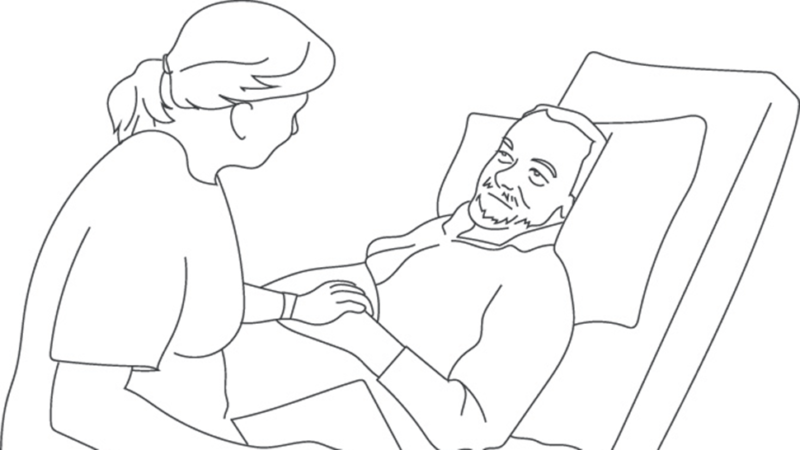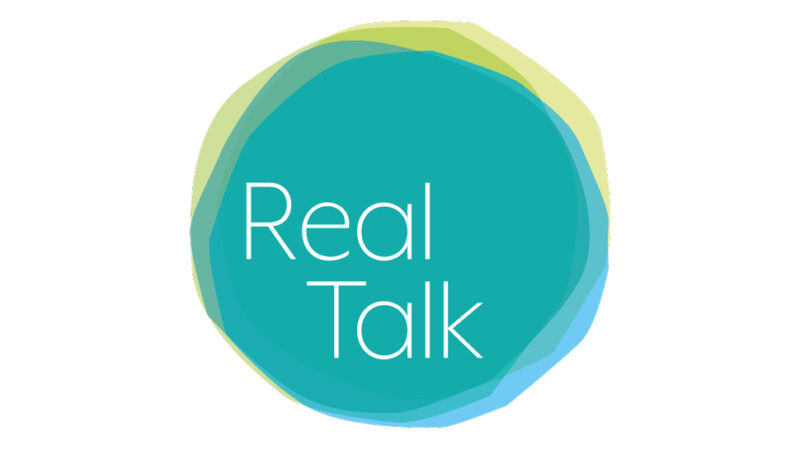
Wednesday 10 July 2024
Training to help compassionate conversations with patients

Katharine Lightbown
Treetops Hospice has welcomed Professor Ruth Parry to their communication skills training team as an honorary professor to develop research-based training on communicating with empathy.
The new training will help health and social care staff enhance their skills in communicating with patients and their loved ones in empathic and compassionate ways.
Ruth joins the leading end-of-life care charity after recently retiring as a Professor of Human Communication and Interaction at Loughborough University.
Ruth, 59, from West Bridgford, explained more about the innovative training:
“Our empathy training is based on cutting-edge scientific research and evidence on communication.”
“Most communication training is based on a type of research that involves asking people what happened after the communication has taken place. But communication is very complex. We often can’t describe all the very clever things we do. For example, how we gaze, talk, and put hand gestures together.
Complexities of communication
“Our training is based on a far more detailed form of research. This involves video-recording real-life consultations and conversations between staff, patients, and their loved ones. People know they’re being recorded – small and unobtrusive cameras are placed around the room. The video-recordings are then analysed in order to identify the complexities of communication and break these down into key components. We call these ‘micro-skills’.
“It can be insightful and promote deep discussion to watch interactions that took place in real life. You can look in really fine detail at how people communicate, and the difficulties experienced in communicating.

Showing understanding and compassion
“The training will provide detailed understandings of the ways that you can convey empathy, the ways that you can pick up on how somebody might be feeling, and the ways that you can show understanding and compassion.
“If staff can communicate with compassion and more empathically, we know this has a positive impact on people’s experiences.””
Firsthand experience
Ruth has firsthand experience of healthcare staff communicating ‘clumsily’ and the impact it can have. Her late husband was diagnosed with cancer in 2015. He died in 2017.
“As you can imagine, we had an awful lot of healthcare conversations. Some of them were great. Some of them were absolutely awful.
“For example, when my husband was becoming more ill towards the end of his life, he started experiencing lots of high temperatures. We went to a specialist clinic to investigate whether he had an infection.
“It turned out his liver was failing, and this was causing his temperatures. But before we knew this, one of the senior nurses approached us and said, ‘Well, you do know that you’re pretty much coming to the end of your life, don’t you?’ It was just so clumsily done.
“My husband went off for a scan and when he came back, there was a doctor sitting by the bed. He talked us through everything in great detail and with a lot of kindness.
“Both those conversations have a real impact on you and how you feel. Even when you leave the hospital, if you’ve had a horrible conversation or been shown a lack of empathy, you can feel very miserable for quite a while.”
Top tips on communicating with empathy
Ruth is sharing some top tips on communicating with empathy based on an analysis of thousands of recorded conversations involving expert communicators:
Encourage the person you are with to share their experience
- Ask them to tell you how they are feeling with questions like ‘I’d like to know how that was for you’ or ‘Could you tell me more?’. It’s important to use wording that comes naturally to you though
- Listen carefully to their answers, and when you speak, mirror their own words
- This will help you tailor what you say and how you say it to just this particular person, at this particular time
Show you are listening
- Speak with a soft tone of voice and kindly facial expressions
- Show you’re deeply interested whilst avoiding showing upset on your part
- When they are talking, let them come to a natural pause or end before you start talking. Don’t rush them, and don’t imply you want to move on to talk about something else
Show understanding, but don’t go too far
- Avoid saying you fully understand. This can come over as patronising or insincere
- Instead, say things like, “That sounds tough” or “You must feel worried.” or even “I can’t imagine what you are going through.”
Offer support
- Avoid going into advice mode; instead, listen and show empathy. Know you can’t solve everything; you can’t just fix their feelings
- Take the time to actively listen and offer small comforts, like a drink or holding their hand. You might want to offer to talk again at another time and date
The training and additional empathy resources will be launched later this year. They will be made available to trainers across all health and social care settings.
RealTalk communication training
At Loughborough University, Ruth led the development of ‘RealTalk’, evidence-based communication training for healthcare staff. ‘RealTalk’ helps increase practitioners’ skills and confidence in handling sensitive conversations with patients reaching the end of their life.
Treetops Hospice currently hosts and disseminates the ‘RealTalk’ resources. Following Ruth’s retirement, Dr Marco Pino, Senior Lecturer in Communication and Social Interaction at Loughborough University will lead the research programme underpinning ‘RealTalk’.

Share article






